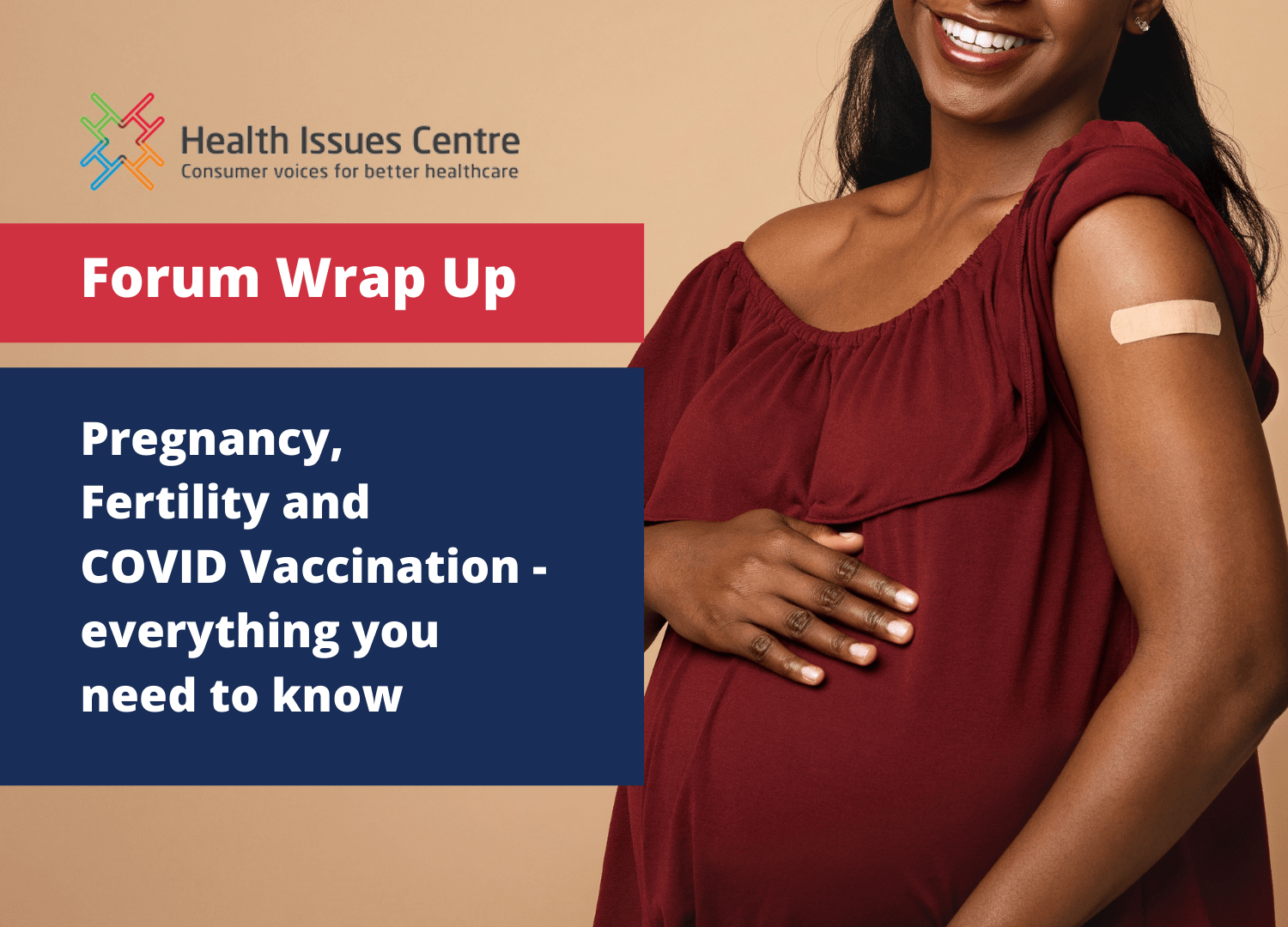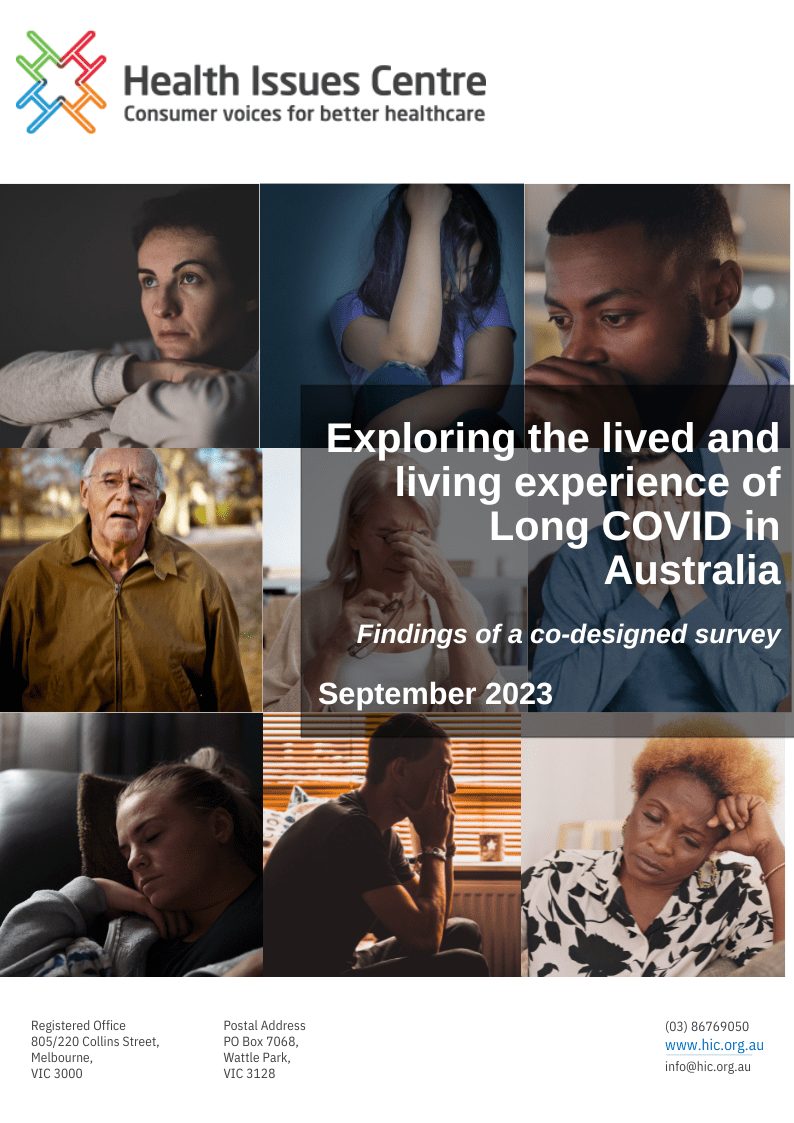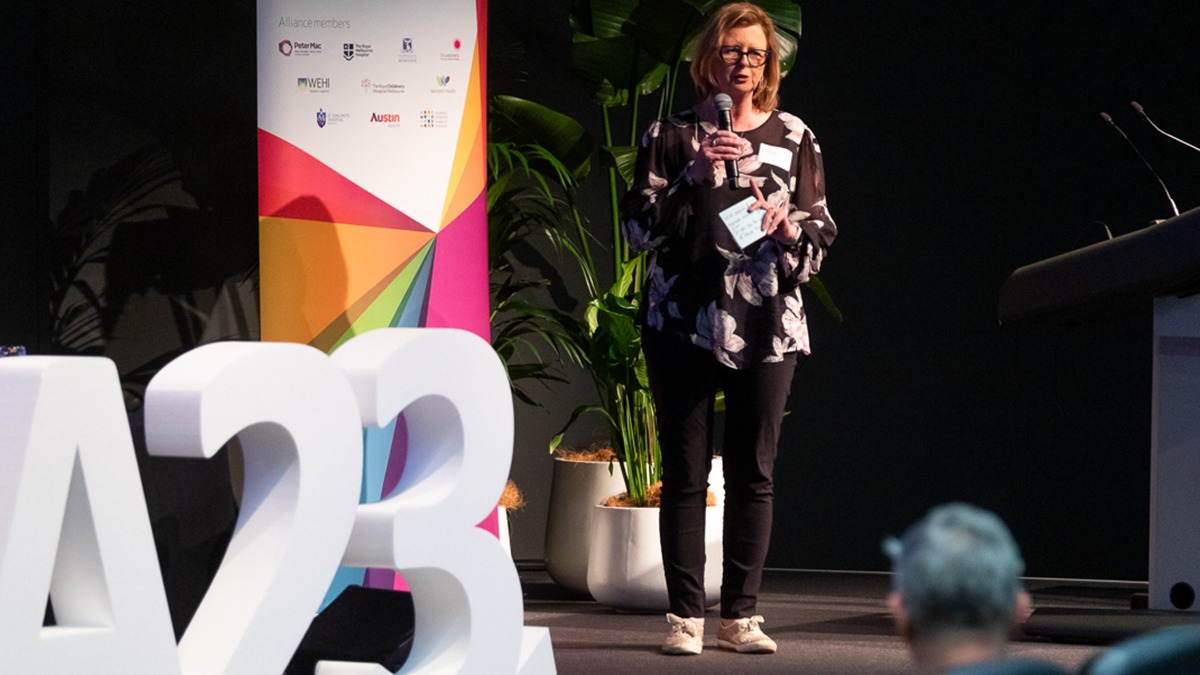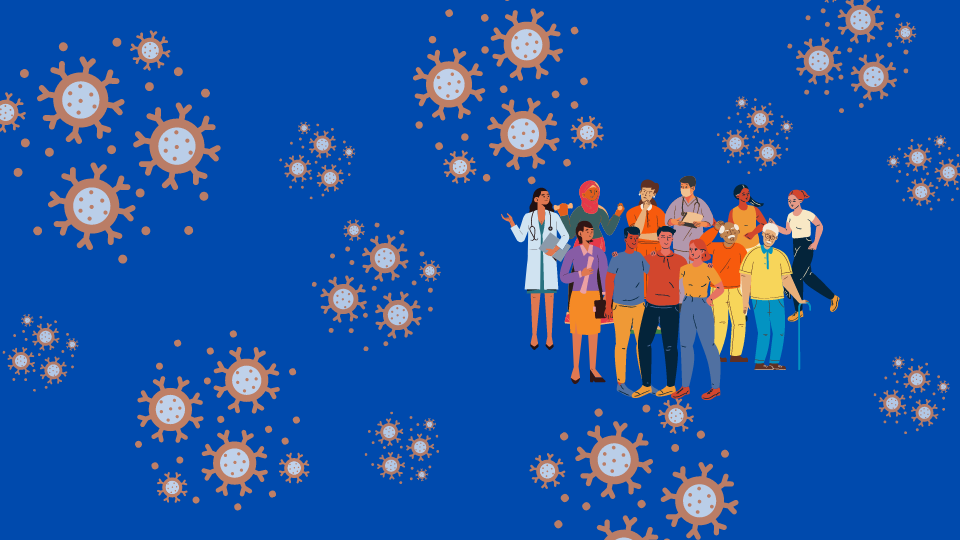People who are pregnant or recently pregnant are more likely to get severely ill if they contract COVID-19 than those who are not pregnant and having a COVID-19 vaccination will help protect you. The best time to get a vaccination is now.
This was the key learning for attendees at our recent forum on pregnancy, fertility and COVID vaccination where we were joined by over 60 participants from across the country, comprising a mixture of consumers, clinicians and others working in the health space.
The key speakers at the forum were:
Professor Caroline Homer, Co-Program Director, Maternal, Child and Adolescent Health, Burnet Institute
Dr Thomas Schulz, Infectious Diseases and General Physician from Royal Melbourne Hospital, currently at the Victorian Health Department as the Senior Medical Advisor to the COVID-19 vaccination program
Both comprehensively broke down the reasons to get vaccinated, what the data says about vaccine safety and efficacy, as well as the potential complications that pregnant women may face if they happen to catch COVID-19.
You can watch the full forum here:
Why get vaccinated?
Getting really sick at any stage of pregnancy can be one of the most dangerous things for a pregnant person and their baby, which is why it’s really important to be up to date with all vaccinations including COVID-19.
Professor Homer outlined some of the key risks of having COVID-19 while pregnant, these included:
Pregnant women with COVID-19 have a higher risk of certain complications compared to non-pregnant women with COVID-19 of the same age:
- higher risk (about 5 times higher) of needing admission to hospital.
- higher risk (about 2-3 times higher) of needing admission to ICU
- higher risk (about 3 times higher) of needing invasive ventilation
- higher chance of preeclampsia (high blood pressure)
- higher chance of gestational diabetes
COVID-19 during pregnancy also increases the risk of complications for the baby:
- More premature births
- More stillbirths
- More smaller babies – low birth weight
When to get vaccinated?
We had several questions from the audience about when it is safe to be vaccinated while pregnant. Both speakers emphasised that getting vaccinated as soon as possible is the best option, there is no stage of pregnancy or post birth where you shouldn’t.
“COVID-19 vaccination is recommended for those who are pregnant, breastfeeding, trying to get pregnant now, or might become pregnant in the future” said Professor Homer.
This also related to booster vaccines, which both speakers agreed should be taken as soon as the prescribed waiting time allows (currently 6 months after your second vaccination shot).
Is there evidence that benefits outweigh risks?
Evidence for the value of COVID-19 vaccination during pregnancy is growing. The benefits of receiving a COVID-19 vaccine outweigh any known or potential risks of vaccination during pregnancy.
There is currently no evidence that any vaccines, including COVID-19 vaccines, cause fertility problems in women or men.
At this stage almost 8 billion people have received a vaccine for COVID-19, with many pregnant women receiving it internationally and no evidence to suggest it causes issues with pregnancy, fertility or breastfeeding.
How do the vaccines work?
Dr Schulz and Professor Homer explained that the vaccines don’t contain any live elements of COVID-19, instead they contain information that readies your immune system to be able to respond quickly if you come into contact with the virus. Your immune system is then ready to control the virus when you are exposed.
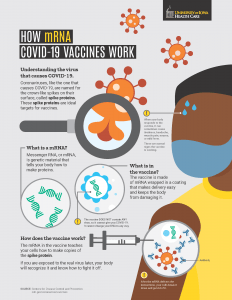
Source: The Loop Shareable resource: How do mRNA and viral vector vaccines work?
Benefits versus risk
With many cases of COVID19 out in the community, it’s really important to consider the likelihood of being exposed to the virus when thinking about if you are going to get vaccinated.
It’s likely we are all going to be exposed to covid… the decision I am making is whether I am going to be exposed to COVID-19 with my immune system ready by taking the vaccine, as opposed to having my system not ready.” Said Dr Schulz.
Information for clinicians
Professor Homer indicated that it was particularly important for clinicians seeing pregnant women to ask all of them about their vaccination status rather than make any assumptions.
She recommended following these steps when speaking to a pregnant woman:
ASK
- Where is she up to in her decision making?
- What does she know already? What else does she need to know?
ACKNOWLEDGE
- It is normal to be concerned or uncertain
ADVISE
- Getting vaccinated in pregnancy is safe and important – protect yourself, your family and your community
ASSIST
- Help her to find and book into a convenient vaccination centre
There are quite a lot of helpful resources available for clinicians including:
- COVID-19 vaccination decision guide for women who are pregnant, breastfeeding or planning pregnancy
- COVID-19 Resources – Australian College of Midwives
You can read more about our last forum ‘Are your COVID-19 concerns being heard?’ here.
References
The impact of COVID-19 on pregnancy outcomes: a systematic review and meta-analysis Shu Qin Wei MD PhD, Marianne Bilodeau-Bertrand MSc, Shiliang Liu MB PhD, Nathalie Auger MD MSc n Cite as: CMAJ 2021 April 19;193:E540-8. doi: 10.1503/cmaj.202604; early-released March 19, 2021
The COVID-19 Vaccine and Pregnancy: What You Need to Know – Hopkins Medicine
COVID-19 Vaccination in Pregnant and Breastfeeding Women and those planning pregnancy, The Royal Australian and New Zealand College of Obstetricians and Gynaecologists
Pregnancy and neonatal outcomes of COVID-19: coreporting of common outcomes from PAN-COVID and AAP-SONPM registrie, E Mullins, M L Hudak, J Banerjee, T Getzlaff, J Townson, K Barnette, R Playle, A Perry, T Bourne, C C Lees, PAN-COVID investigators and the National Perinatal COVID-19 Registry Study Group


